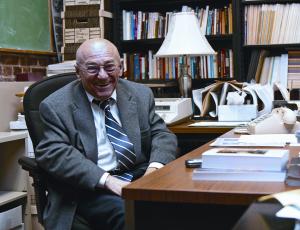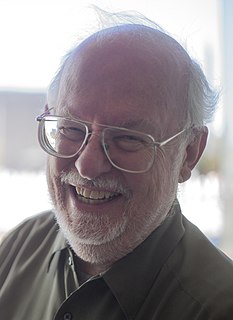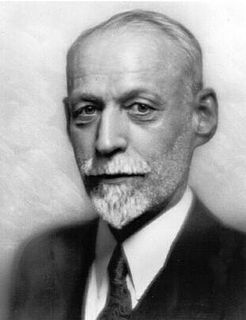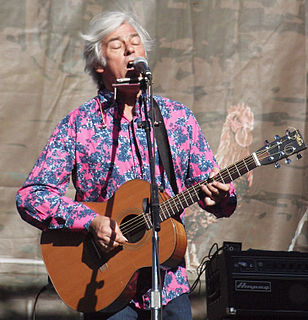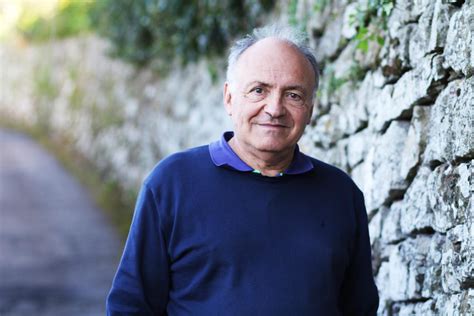A Quote by David Whyte
We sabotage our creative possibilities because the world revealed by our imagination may not fit well with the life we have taken so much trouble to construct over the years. Faced with the pain of that distance, the distance between desire and reality, we turn just for a moment and quickly busy ourselves.
Related Quotes
Our thoughts, our language, are always at a distance from whatever they're trying to describe. We're dreamers and - since we only have one life, and if we screw up we can get in a world of trouble - we're very intense dreamers. That's the beauty and the terror of being human beings: We just have these symbolic languages, these dreams, and that's all it ever is. There is no American or Frenchhistory. There are all these dreams that are floating around. People construct them and fight with them and criticize them, and the world goes on. I don't think the stars pay much attention.
We may exist in all universes, but 'hear' only one because of our limitations, the valve of our desires, our practical, physical needs. All is vibration, with nothing vibrating across no distance whatsoever. All is music. A universe, a world, is just one long difficult song. The difference between worlds is the difference between songs.
In her previous novels, Maggie O'Farrell has often measured the distance between intimates and the unexpected intimacy of distance - geographic, temporal, cultural. In 'The Hand That First Held Mine' and 'The Distance Between Us,' characters separated by many miles or many years turn out to be joined in ways they never anticipated.
In abstract mathematics or abstract art, the purpose is to describe inner states of our mind, and to explore the limits of our own imagination and our capacity for creativity. While this has some applications in the world, I think it leads to a distance from the world. Going to Congo was for me an act of seeking proximity, of breaking that distance. With abstraction, which is brilliant and vain, you divorce yourself from any kind of proximity to other people.
It is sometimes said that because of our past we, as a people, expect too much and set our sights too high. That is not the way I see it. Rather it seems to me that throughout my life in politics our ambitions have steadily shrunk. Our response to disappointment has not been to lengthen our stride but to shorten the distance to be covered. But with confidence in ourselves and in our future what a nation we could be!
Who can keep us from recreating our life as we would like it to be-as it could, and should be? No one but ourselves can keep us from being artists, rather than marching forward like mere consumers, corporate robots, sheep. No one but ourselves can keep us from dancing with life instead of goose-stepping. In every moment recognizing our own creative imagination, the living picture we paint on the canvas of our lives. Everything is imagination. And imagination is freedom, but it can also be conditioning, bondage.
There is really no fiction or non-fiction; there is only narrative. One mode of perception has no greater claim on the truth than the other; that the distance has perhaps to do with distance - narrative distance - from the characters; it has to do with the kind of voice that is talking, but it certainly hasn't to do with the common distribution between fact and imagination.
There is a huge gap between us (Jews) and our enemies, not just in ability but in morality, culture, sanctity of life, and conscience. They are our neighbours here, but it seems as if at a distance of a few hundred meters away, there are people who do not belong to our continent, to our world, but actually belong to a different galaxy.
We are thankful for these and all the good things of life. We recognize that they are a part of our common heritage and come to us through the efforts of our brothers and sisters the world over. What we desire for ourselves, we wish for all. To this end, may we take our share in the world's work and the world's struggles.
A near win shifts our view of the landscape. It can turn future goals, which we tend to envision at a distance, into more proximate events. We consider temporal distance as we do spatial distance. (Visualize a great day tomorrow and we see it with granular, practical clarity. But picture what a great day in the future might be like, not tomorrow but fifty years from now, and the image will be hazier.)
In trusting, we let ourselves go. We know that all kinds of unexpected events may come our way. Our tension eases, our mind and our hearts open spontaneously to be possibilities. It is an ever new state of mind, in the present moment, because we have detached from all we know. But it is also a feeling as old as can be, because, before all betrayals and all disappointments, there was a time in which trusting another was the very substance of our life.


